VIPsight - 3rd Edition 2021
COMPANIES
Bechtle AG / Gesco AG: To one his Owl is to the other his Nightingale
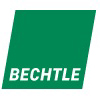
 Occasionally it's the little things on the side that provide food for thought. For example, Bechtle AG recently announced that its Supervisory Board approved the proposal submitted by the Executive Board to suspend the intended re-registration of the company under the corporate form of a SE, and to end any efforts in these regards. Shareholders were informed that pandemic-related restrictions made it impossible to conduct statutory in-person meetings to prepare the conversion, and that there is no certainty at this time as to whether in-person meetings within the required time frames will be once again possible in the coming months.
Occasionally it's the little things on the side that provide food for thought. For example, Bechtle AG recently announced that its Supervisory Board approved the proposal submitted by the Executive Board to suspend the intended re-registration of the company under the corporate form of a SE, and to end any efforts in these regards. Shareholders were informed that pandemic-related restrictions made it impossible to conduct statutory in-person meetings to prepare the conversion, and that there is no certainty at this time as to whether in-person meetings within the required time frames will be once again possible in the coming months.
This is interesting, especially since Gesco AG informed just moments beforehand that its Boards resolved to transfer Gesco AG into an SE by way of a merger by acquisition. This transformation is to be achieved by merging wkk.1 Autovermietung AG, registered in Vienna, into Gesco AG, and changing the legal form into an SE. Shareholders will continue to hold the same number of shares, and there will be no increase in the total number of shares in Gesco AG, as the merger is to take place without any new shares being issued. The transformation requires that the Gesco AGM agrees to the merger plan, and it is planned that the AGM 2022 should address the proposal for the resolution.
It works, it doesn't work, or how else?
Adler Group SA: The Price of Opacity
In recent months, the Adler share has often been the focus of interest. This is due to an investor whose allegations triggered a sharp price slide and an increase in the share price volatility since. It goes without saying that the company resisted this and countered it with publications and swift actions. But despite all these efforts, the share price is still down, shareholders are unsettled, and the mud fight continues.
Does this mean that the critical shareholder is right with his allegations? Not at all. But he must have chosen a target suitable for a certain market strategy. Real estate companies need liabilities to grow. In a sector comparison, Adler has relatively high liabilities. On top of that, there is the complex structure of the Adler group. This is the result of the group history, with acquisitions, and the optimization of the structure from an operational perspective. Probably there are good reasons and explanations for the complexity. But even if every element may be formally correct, this does not mean that the sum of it means a good corporate governance from the shareholders' point of view.
A lack of transparency can become expensive if the shareholders no longer play along. And that is exactly what seems to have happened here. Then it doesn't matter whether the allegations are true or not. In retrospective, Adler was just a sitting duck that has now been hit. Of course, a company then needs to defend itself. But at the same time the attitudes of the shareholders have changed.
Therefore, from an operational point of view, the announcement of an extensive property sale at a sales price above the book value helping to substantially reduce liabilities is appreciated, but not identifying the buyer is like pouring oil on a fire as far as shareholders are concerned.
Buhlmann's Corner
Quo vadis shareholder democracy
https://www.rimini-protokoll.de/website/de/project/hauptversammlung
https://www.rimini-protokoll.de/website/de/text/wenn-die-daimler-hauptversammlung-zum-theater-wird
«En un lugar de la Mancha, de cuyo nombre no quiero acordarme, no ha mucho tiempo que vivía un hidalgo de los de lanza en astillero, adarga antigua, rocín flaco y galgo corredor.»
In a village of La Mancha, the name of which I have no desire to call to mind, there lived not long since one of those gentlemen that keep a lance in the lance-rack, an old buckler, a lean hack, and a greyhound for coursing.
First sentence of the novel, translated by John Ormsby

For many years, Germany was a role model regarding general meetings, building on the 1965 reform of company law. For many European countries, these regulations came later with the Shareholders' Rights Directive 2007/36/EC. Some did not even reach the growing democratic era because they jumped straight into the oligopoly world of American voting rights advisors: brave new world.
If shareholder democracy used to be physical and often enough governed by trial-and-error, today both medicine and epidemic have made it bloodless. It becomes a joke when "papers" are exchanged in advance and then virtually combined into minutes through one-way recitations. If the people were consistent, they would collect the electric papers in the notary's office and have them professionally read out there.
Kept away from the scene, the squires take refuge in an imaginary world. With the contact drug of the 1 to 1, they are lured into the back rooms of the stock corporations, where they are allowed to leave the data cloud for a few moments and take a seat at the table. Transparency thus only takes place in theory. To numb the omnipresent conflict of interest, so-called "capital market days" are regularly celebrated as a substitute, where representatives come together, similar as in the cooperative system. The mere fact that they are delegated to such meetings is already suspicious of conflict.
Just as years ago Daimler AG's AGM in the all-black Cube in Berlin even served as a theatre play, the face-2-face shareholder meetings with issuers remain a black box. Right, then not only contestation (a quintessentially German topic, by the way) is mentally ruled out, but also what can be called democracy becomes astronomically remote.
The first time it was done spontaneously (Bayer HV 2020ff), the next time it was prolonged and, because of the Bundestag elections in Germany, it renewed or, more correctly, delayed again. What works three times has tradition, that's how things are on the Rhine, the Isar and the Spree.
As the creator of the (German) virtual AGM Prof. Ulrich Seibert said: let's do this for now and then we'll have a look at it. It will remain a "pure emergency law (...); this will not be a blueprint for general company law afterwards in normal times. Our main focus had to be that in this crisis situation, (...), general meetings can be conducted in a reasonably legally secure manner."
Reality has overtaken him.
What else needs to happen after 9/11, after an oil price crisis, after a pandemic, but also after more than 50 years of the Club of Rome, for responsibility and/or sustainability to be put into practice?
There rides the Spanish nobleman of La Mancha on a hungry horse, protected from blows only by Sancho Panza.
Unfortunately, one thing is certain: Don Quijote's next adventure is sure to come.
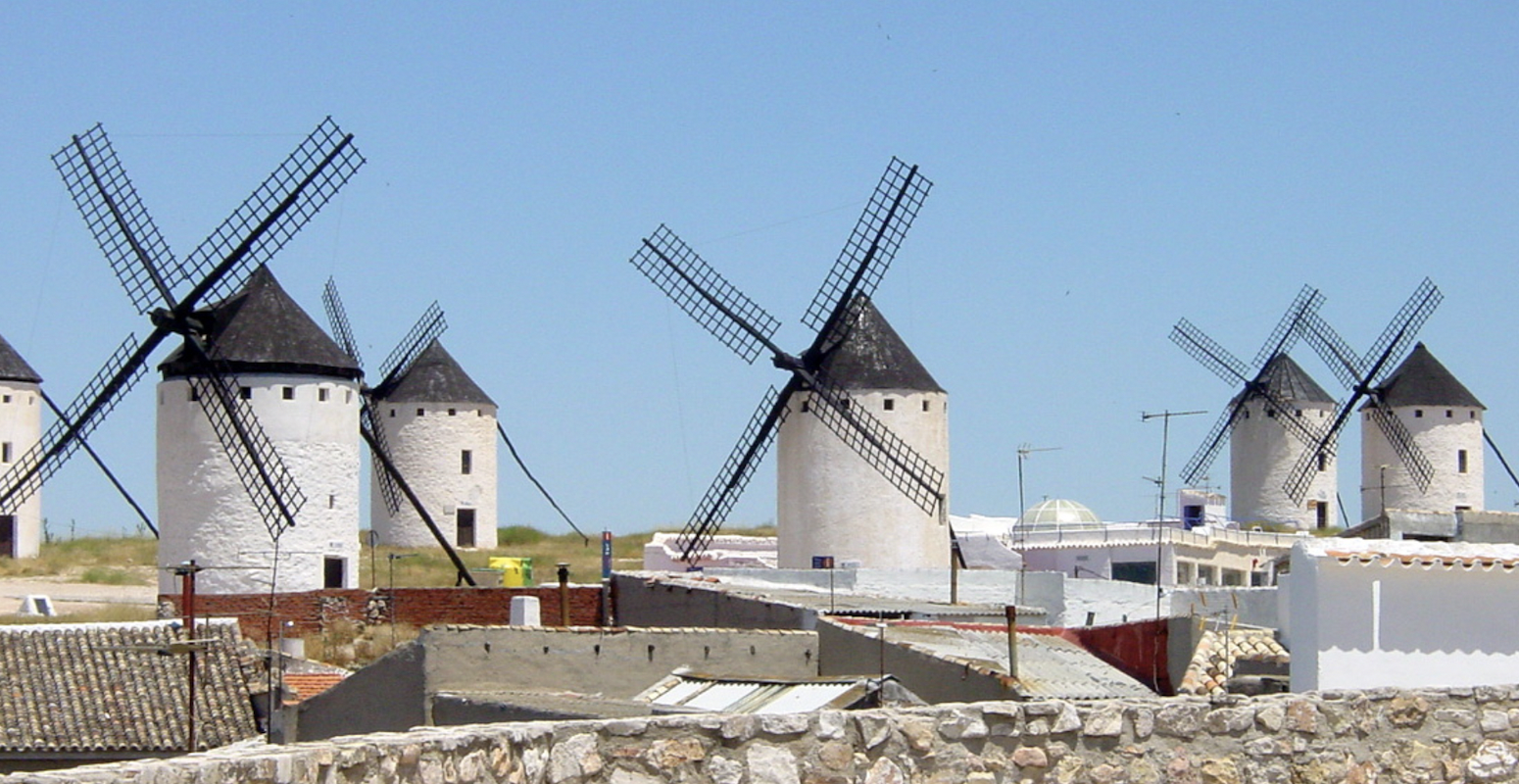
ACTIONS CORNER
TUI AG: Scrubbing the Deck
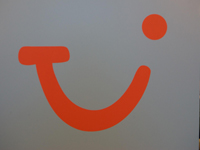 As of now, nobody knows if business conditions in the tourist industry will ever reach the level before COVID. In such an environment it is not a mistake to systematically strengthen your own position, which seems to be the strategy of TUI. The capital increase implemented in October is an important building block on this path.
As of now, nobody knows if business conditions in the tourist industry will ever reach the level before COVID. In such an environment it is not a mistake to systematically strengthen your own position, which seems to be the strategy of TUI. The capital increase implemented in October is an important building block on this path.
The company decided to launch a fully underwritten capital increase with subscription rights to raise gross proceeds of approx. 1.1 bn EUR. Accordingly, the offer comprised 523,520,778 new shares at a subscription ratio of 10:21, issued at a subscription price of 2.15 EUR per new share. The subscription period ended on October 26th.
The company went ahead cautiously with this measure. TUI's largest shareholder, Unifirm Limited, with a 32.0% holding in the company, undertook to exercise all subscription rights attributable to its shareholding. The rest of the capital increase was secured through an underwriting by a banking syndicate.
The net proceeds of the offering are supposed to reduce the net debt position. In a troubled market environment with numerous imponderables, this is obviously a sensible approach, which is why shareholders exercised neraly all subscription rights.
TLG IMMOBILIEN AG: Another One bites the Dust
It's been twenty years since the Treuhandanstalt founded TLG. The company has since shown a successful development, including a successful IPO in 2014. But the stock exchange listing will probably soon become history, since TLG´s management board in consultation with Aroundtown SA, which holds approx. 79.89% of the shares of the company, has resolved to delist the shares for trading in the Regulated Market of the Frankfurt Stock Exchange following the publication of a public delisting offer by Aroundtown. To this end, TLG concluded a delisting agreement with Aroundtown, which has committed itself to making a public tender offer to the TLG shareholders to buy their shares at a price of 31.67 per TLG share.
Basically, this sounds like standard business. But there is one surprising part to it. To allow shareholders to sell their shares to the company ahead of the completion of the delisting offer, the management board of TLG considers buying back TLG shares by way of a public share buyback offer. Ups, let us keep our fingers crossed that Aroundtown won't use this opportunity.
Capital News
adidas AG: Reebok to walk on its own Feet again
 This is the news adidas shareholders have long been waiting for: adidas finally sold its` Reebok brake block. And even at an unexpectedly decent price.
This is the news adidas shareholders have long been waiting for: adidas finally sold its` Reebok brake block. And even at an unexpectedly decent price.
On August 12th, adidas announced that it has entered into a definitive agreement to sell Reebok to Authentic Brands Group (ABG) for a total consideration of up to € 2.1 billion, with the majority to be paid in cash at closing and the rest comprised of deferred and contingent consideration. Despite the unfortunate performance of the Reebok in recent years, adidas expressed that the company "has been a valued part of adidas, and we are grateful for the contributions the brand and the team behind it have made to our company."
Given Reebok's mediocre performance since its acquisition in 2006, not all adidas shareholders have shared this view. As part of a strategic reorientation, adidas has assessed strategic alternatives for Reebok with a focus on ensuring both adidas and Reebok would be well positioned for sustainable growth earlier this year. The result was the initiation of a formal process to divest Reebok, which ultimately led to the sale. After all, with a total consideration of up to 2.1 bn euros, adidas regained a substantial part of the purchase price of around 3.8 billion USD it paid in 2006.
K + S AG: Stick and Carrot for Shareholders
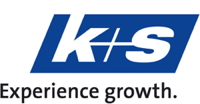 K + S shareholders are reluctant to remember the news flow in November 2020. At the time, the company suffered an impairment loss of approx. 2 billion EUR. But just a month later there was good news to be heard. K + S and a subsidiary of REMONDIS decided to bundle their waste management activities in a new joint venture, REKS GmbH & Co. KG, in which both companies shall be equal partners with 50 percent participation each. The transaction is supposed to enable K + S to realize a significant book gain and receive a cash inflow of about 90 million EUR.
K + S shareholders are reluctant to remember the news flow in November 2020. At the time, the company suffered an impairment loss of approx. 2 billion EUR. But just a month later there was good news to be heard. K + S and a subsidiary of REMONDIS decided to bundle their waste management activities in a new joint venture, REKS GmbH & Co. KG, in which both companies shall be equal partners with 50 percent participation each. The transaction is supposed to enable K + S to realize a significant book gain and receive a cash inflow of about 90 million EUR.
Initially, the closing of this transaction was expected in the Summer 2021. Since this did not materialize so far, K + S supplied an update in October.
Unfortunately, the good news was overlooked by many market participants, since the company pleased the shareholders with news about a raised forecast for the operating result for 2021 at the same time. I am happy to repeat it at this point: the one-off gain from the REKS transaction is expected to be approx. 200 million EUR. The only catch is that it has yet to be realized, since the review of the transaction by the Federal Cartel Office is still ongoing.
This means that we will hear more good news from K + S on this matter later.
Aareal Bank AG: Open-ended Discussions with financial Investors about an Acquisition of a majority Interest
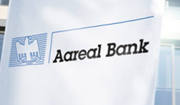 For a long time, Aareal Bank impressed investors with its solid performance. But that is history for a long time, while the past few months have been marked by fierce arguments with a critical investor.
For a long time, Aareal Bank impressed investors with its solid performance. But that is history for a long time, while the past few months have been marked by fierce arguments with a critical investor.
Such processes not only cost strength. Occasionally they also open up new strategic perspectives, and at the same time they may call opportunistic investors onto the scene, which also might have happened here.
Aareal confirmed in October that its Management Board has entered talks about a potential acquisition of a majority interest in the bank by a group of financial investors led by Centerbridge and TowerBrook, and with participation of Advent, after having been approached by them with the aim of exploring potential strategic opportunities for the bank. In this context, these investors have raised the possibility of giving a public offer for an indicative price of 29.00 EUR per share.
M & A
Delivery Hero SE: A hot Bet on Growth
To investors, Delivery Hero may look like a good portfolio hedge against COVID effects. The market for food and grocery deliveries still enjoys a boost by the pandemic, and there is no end in sight to this growth spurt yet.
At first glance, this looks like a good fit with the aggressive growth strategy of Delivery Hero. However, less well-meaning viewers call this strategy growth at any price.
Whether you like this or not, mergers and acquisitions competencies are a key factor for this company. In 2021 Delivery Hero significantly expanded its market position in Korea, where it acquired the leading market position via a strategic partnership with Woowa Brothers Corp., while selling its former local subsidiary Delivery Hero Korea LLC (Yogiyo) to a syndicate of institutional investors in October.
The 2021 M&A agenda, however, is much longer. The Turkish subsidiary Yemeksepeti launched a quick commerce platform aiming to deliver anything from local stores and acquired an online shop platform providing local supermarkets with online sales opportunities (Marketyo). In Denmark, Hangry.dk ApS, was taken over, while the takeover of the food delivery and quick commerce business of the multi-category marketplace hugo, strengthens the market position in Central America and Jamaica. On the other hand, Delivery Hero disposed of its businesses in Bosnia Herzegovina, Bulgaria, Montenegro, Romania and Serbia, and certain parts of the Croatian operations.
M&A begins to look like the core business of Delivery Hero. The key question now should be, if this will grow into an integrated group, or should we more of a private equity type company specialized in this market? In this respect, another piece of news seems to be important. This summer, Delivery Hero returned to its home market under the foodpanda brand. Compared to the acquisitions, this may be just an insignificant step. However, it could be the acid test: can you deliver or not?















